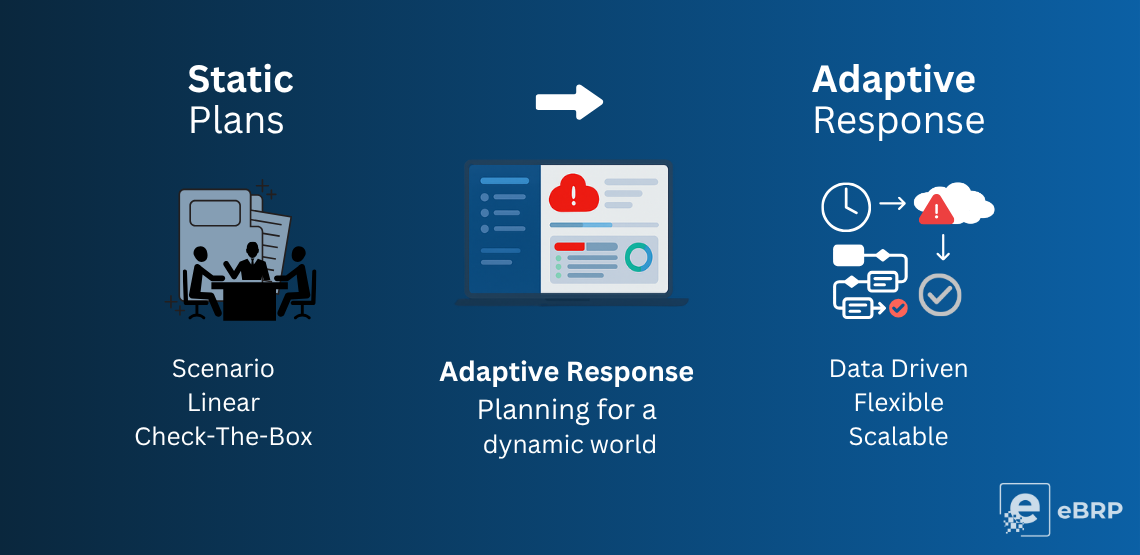From cyber incidents and conflict-related events to supply chain disruption and operational outages, organizations face complex scenarios that often demand coordinated, and more effective responses than traditional continuity plans can deliver. Yet many plans remain static — created for predefined scenarios, often disconnected from the real life conditions they’re meant to address.
This is where adaptive response planning addresses the business challenges. Rather than relying on rigid protocols, adaptive plans are structured to flex. They’re modular by design, allowing them to adjust to the nature and scale of a disruption as it unfolds.
Adaptive response isn’t about discarding structure — it’s about making structure dynamically adaptable. With platforms like eBRP Suite CommandCentre, organizations can integrate automation and visibility into their plans, ensuring that stakeholders can initiate, pause, or escalate responses without delay.
Crucially, adaptive planning also requires thoughtful preparation. Organizations should build awareness of threat landscape and then develop adaptable Plan Templates. These plans should be regularly tested — not just for compliance, but to build confidence and responsiveness under pressure. Simulation-based testing ensures that teams know how to execute their roles in real time and reveals opportunities for refinement before an actual event occurs.
For example, imagine a global retailer facing simultaneous warehouse flooding and a supplier disruption. A traditional plan might sequence responses linearly. An adaptive response, however, would coordinate task rerouting, activate HR support, and initiate compliance documentation — all at once. This coordinated execution minimizes downtime and helps maintain Business Continuity when it matters most.
Adaptive response planning represents a strategic shift from reactive continuity to proactive resiliency. It equips organizations to act swiftly, coordinate seamlessly, and recover efficiently across unpredictable conditions. As disruptions are unpredictable, the ability to pivot under pressure is no longer optional — it’s foundational to enterprise resilience.
Looking to assess how adaptive your current response plans are? Join us at one of our upcoming webinars.


